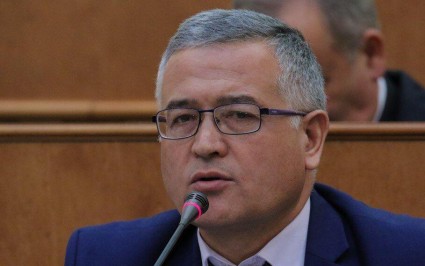The distribution of Kyzylkumcement net profit for 2020, including the submission to the general meeting of shareholders (GMS) of the issue of directing profits for the payment of dividends, will be considered after "stabilization of the company's financial position". The company announced this on February 16. At the same time, the OCA, which was rescheduled for February 17, was postponed for an indefinite period.
The annual GMS on May 22, 2021 decided to contribute 442.59 billion soums (989 soums per share, or 63% of par value) from the net profit for 2020 worth of 589.99 billion soums to pay dividends. Most of these funds were to be received by the state as the main shareholder (86.92% of the share).
However, later a meeting of shareholders was convened several times to review the decision on the distribution of net profit, and at the meeting on August 27 it was decided not to distribute net profit until the relevant conclusion of the "working group" was received, although, according to the Joint Stock Companies and Protection of Shareholders' Rights law ", such an agreement is not required.
On December 31, the Cypriot United Cement Group with owners stationed in Kazakhstan acquired a state-owned stake in Kyzylkumcement for 1.89 trillion soums (nearly $175 million). This is the holding's third cement plant in Uzbekistan after Kuvasaycement and Bekabadcement.
Fusion Wealth Management manager Michael McGoughy said the state sold the asset at a price 20% below market value, calling the deal as non-transparent. According to him, the deal will negatively affect the competitive environment in the field, since UCG now controls about 50% of the country's cement capacities.
The authorities of Uzbekistan have not yet commented on the sale.
In nine months of 2021, Kyzylkumcement’s net profit topped o 250.3 billion soums. While, the plant had 31.3 billion soums of cash on its balance sheet for this period, which is not enough for a one-time payment of dividends. The cash gap may be due to the construction of the fourth clinker production unit at a cost of almost $130 million.















